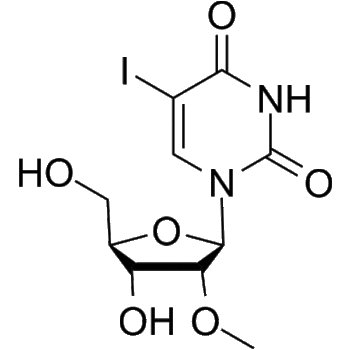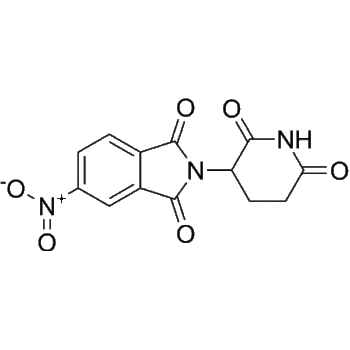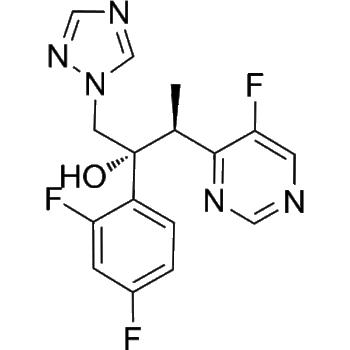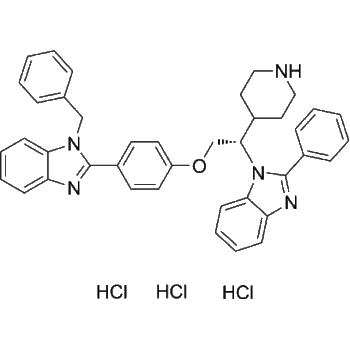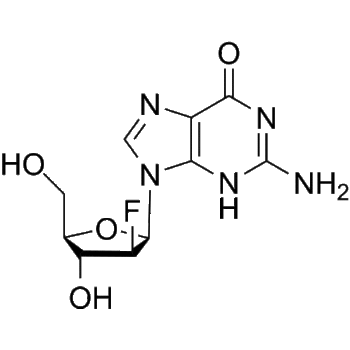
Download Files:
Enoxacin
SKU
HY-B0268-Get quote
Category Reference compound
Tags Anti-infection;Cell Cycle/DNA Damage;Epigenetics, Antibiotic;Bacterial;DNA/RNA Synthesis;MicroRNA, Cancer; Infection
Products Details
Product Description
– Enoxacin (AT 2266), a fluoroquinolone, interferes with DNA replication and inhibits bacterial DNA gyrase (IC50=126 µg/ml) and topoisomerase IV (IC50=26.5 µg/ml). Enoxacin is a miRNA processing activator and enhances siRNA-mediated mRNA degradation and promotes the biogenesis of endogenous miRNAs. Enoxacin has potent activities against gram-positive and -negative bacteria. Enoxacin is a cancer-specific growth inhibitor that acts by enhancing TAR RNA-binding protein 2 (TRBP)-mediated microRNA processing[1][2][3][4].
Web ID
– HY-B0268
Storage Temperature
– 4°C (Powder, protect from light)
Shipping
– Room Temperature
Applications
– Neuroscience-Neuromodulation
Molecular Formula
– C15H17FN4O3
References
– [1]Chin, N.-X. and H.C. Neu, In vitro activity of enoxacin, a quinolone carboxylic acid, compared with those of norfloxacin, new beta-lactams, aminoglycosides, and trimethoprim. Antimicrobial agents and chemotherapy, 1983. 24(5): p. 754-763.|[2]Sonia Melo, et al.Small molecule enoxacin is a cancer-specific growth inhibitor that acts by enhancing TAR RNA-binding protein 2-mediated microRNA processing. Proc Natl Acad Sci U S A. 2011 Mar 15;108(11):4394-9.|[3]Ge Shan, et al. A small molecule enhances RNA interference and promotes microRNA processing. Nat Biotechnol. 2008 Aug;26(8):933-40.|[4]Rengen Fan, et al. Small molecules with big roles in microRNA chemical biology and microRNA-targeted therapeutics. RNA Biol. 2019 Jun;16(6):707-718.|[5]M Takei, et al. Target preference of 15 quinolones against Staphylococcus aureus, based on antibacterial activities and target inhibition. Antimicrob Agents Chemother. 2001 Dec;45(12):3544-7.
CAS Number
– 74011-58-8
Molecular Weight
– 320.32
Compound Purity
– 98.67
SMILES
– O=C(C1=CN(CC)C2=C(C=C(F)C(N3CCNCC3)=N2)C1=O)O
Clinical Information
– Launched
Research Area
– Cancer; Infection
Solubility
– 10 mM in DMSO
Target
– Antibiotic;Bacterial;DNA/RNA Synthesis;MicroRNA
Isoform
– Quinolone
Pathway
– Anti-infection;Cell Cycle/DNA Damage;Epigenetics
Product type
– Reference compound
Disclaimer: All products are for Research use only unless clearly stated otherwise on the product datasheet. Datasheets provided on the website are drafts for reference purpose only and you are requested to always refer to the hard copy included in the kit for your experimentation. Agdia Products are available for delivery only in Canada.
